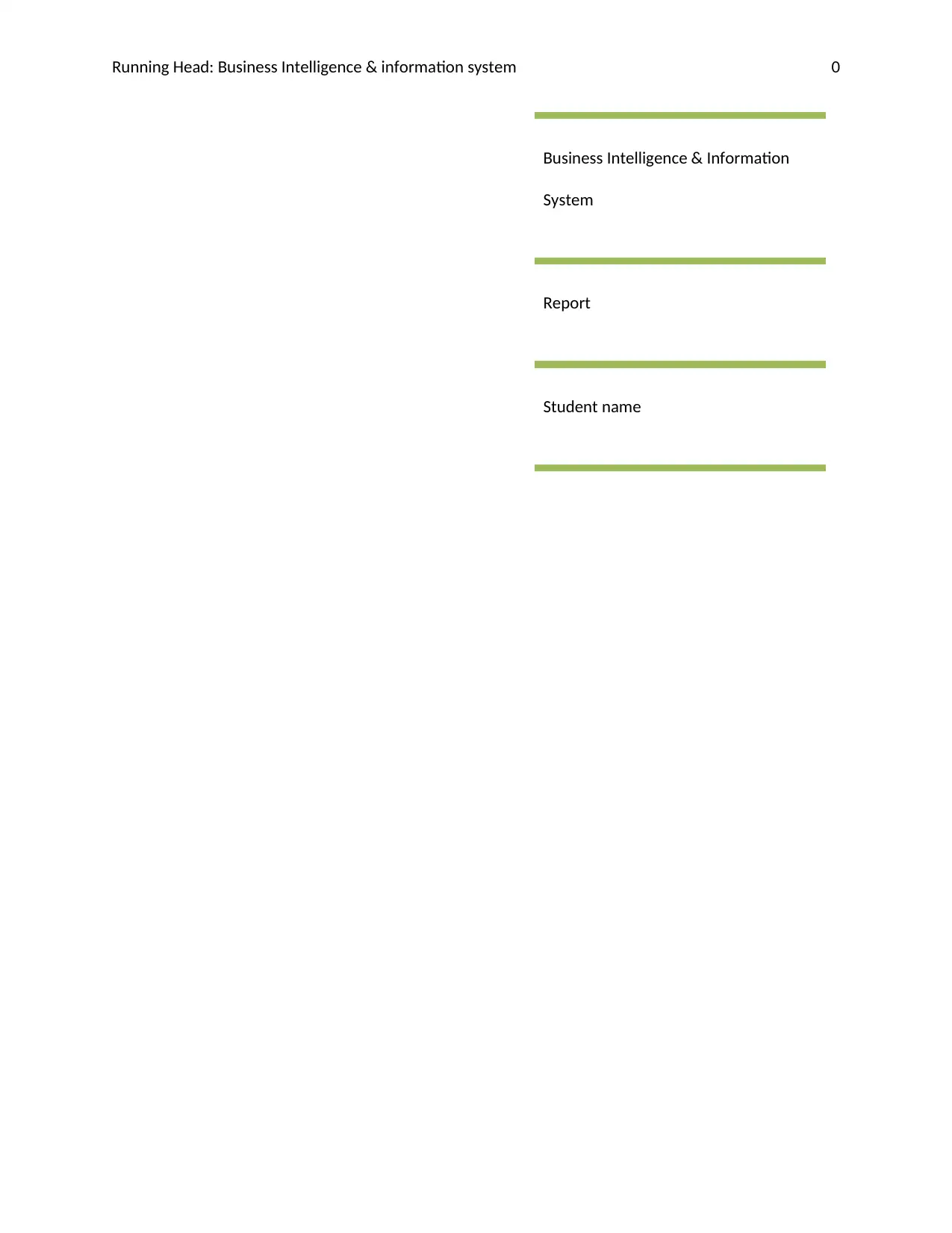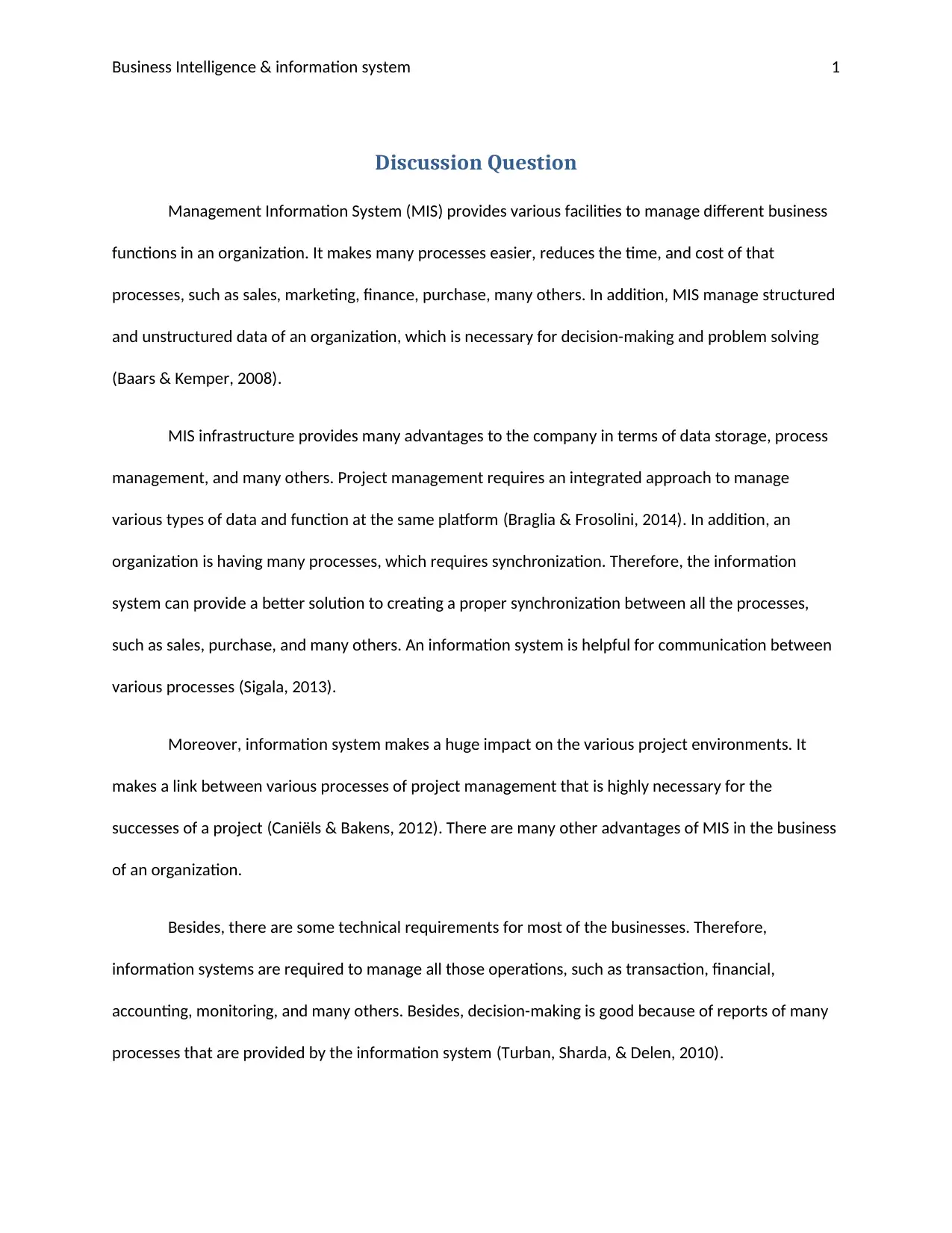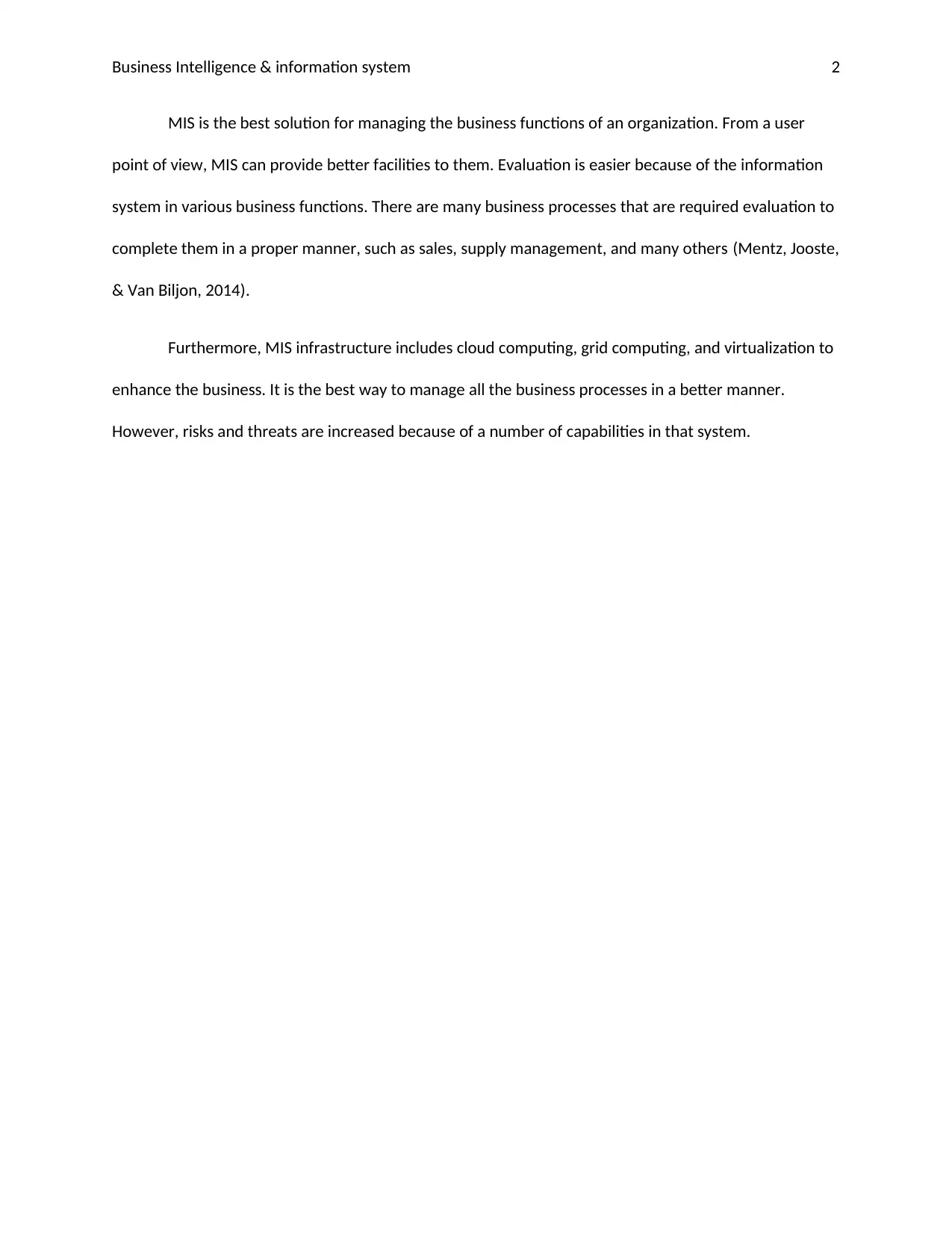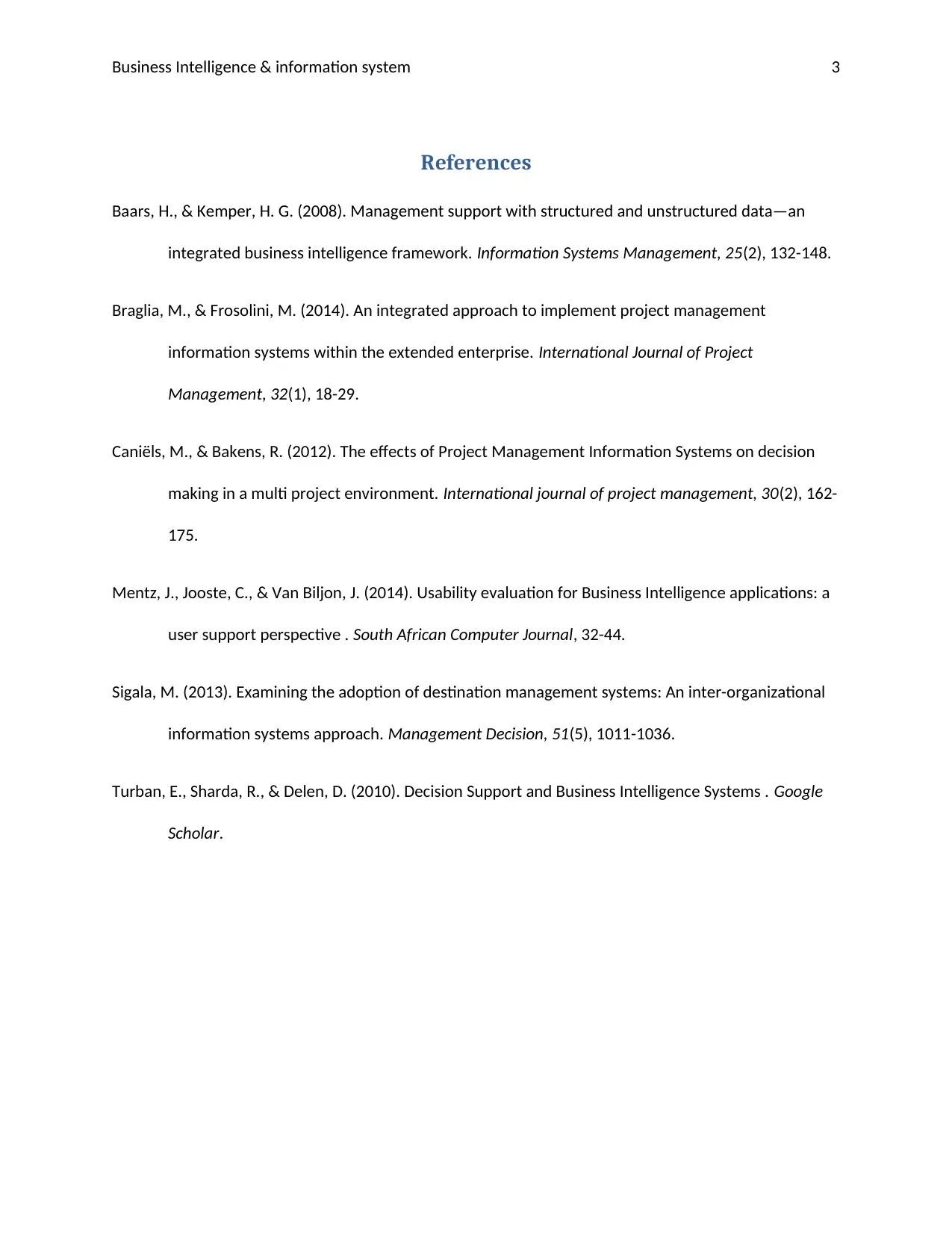Business Intelligence & Information System - Report
VerifiedAdded on 2022/11/13
|4
|675
|192
AI Summary
This report discusses the advantages of Management Information System (MIS) in managing different business functions in an organization. It also highlights the technical requirements and evaluation process of various business processes.
Contribute Materials
Your contribution can guide someone’s learning journey. Share your
documents today.
1 out of 4










![[object Object]](/_next/static/media/star-bottom.7253800d.svg)